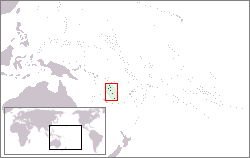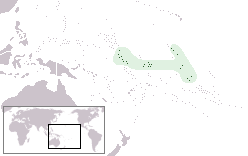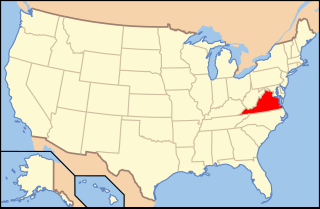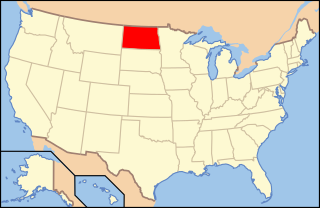This is a list of notable events in the history of LGBT rights that took place in the year 2003.
Gay-friendly or LGBT-friendly places, policies, people, or institutions are those that are open and welcoming to gay or LGBTQ people. They typically aim to create an environment that is supportive, respectful, and non-judgmental towards the LGBT community. The term "gay-friendly" originated in the late 20th century in North America, as a byproduct of a gradual implementation of gay rights, greater acceptance of LGBT people in society, and the recognition of LGBT people as a distinct consumer group for businesses.

The rights of lesbian, gay, bisexual, and transgender (LGBTQ) people in the United Kingdom of Great Britain and Northern Ireland have developed significantly over time. Today, lesbian, gay and bisexual rights are considered to be advanced by international standards.

Lesbian, gay, bisexual, and transgender (LGBT) rights in Cyprus have evolved in recent years, but LGBTQ people still face legal challenges not experienced by non-LGBT residents. Both male and female expressions of same-sex sexual activity were decriminalised in 1998, and civil unions which grant several of the rights and benefits of marriage have been legal since December 2015. Conversion therapy was banned in Cyprus in May 2023. However, adoption rights in Cyprus are reserved for heterosexual couples only.
This is a list of notable events in the history of LGBT rights that took place in the year 2007.

Oceania is, like other regions, quite diverse in its laws regarding LGBT rights. This ranges from significant rights, including same-sex marriage – granted to the LGBT+ community in New Zealand, Australia, Guam, Hawaii, Easter Island, Northern Mariana Islands, Wallis and Futuna, New Caledonia, French Polynesia and the Pitcairn Islands – to remaining criminal penalties for homosexual activity in six countries and one territory. Although acceptance is growing across the Pacific, violence and social stigma remain issues for LGBT+ communities. This also leads to problems with healthcare, including access to HIV treatment in countries such as Papua New Guinea and the Solomon Islands where homosexuality is criminalised.

Lesbian, gay, bisexual, and transgender (LGBT) persons in Vanuatu may face legal challenges not experienced by non-LGBTQ residents. Same-sex sexual activity is legal, but households headed by same-sex couples are not eligible for the same legal protections available to opposite-sex married couples.

Lesbian, gay, bisexual, transgender, and queer (LGBTQ) people in the U.S. state of New Jersey have the same legal rights as non-LGBTQ people. LGBT individuals in New Jersey enjoy strong protections from discrimination, and have had the same marriage rights as heterosexual people since October 21, 2013.

Lesbian, gay, bisexual, transgender, and queer (LGBTQ) people in the U.S. state of Georgia enjoy most of the same rights as non-LGBTQ people. LGBTQ rights in the state have been a recent occurrence, with most improvements occurring from the 2010s onward. Same-sex sexual activity has been legal since 1998, although the state legislature has not repealed its sodomy law. Same-sex marriage has been legal in the state since 2015, in accordance with Obergefell v. Hodges. In addition, the state's largest city Atlanta, has a vibrant LGBTQ community and holds the biggest Pride parade in the Southeast. The state's hate crime laws, effective since June 26, 2020, explicitly include sexual orientation.

Lesbian, gay, bisexual, transgender, and queer (LGBTQ) people in the U.S. state of Massachusetts enjoy the same rights as non-LGBTQ people. The U.S. state of Massachusetts is one of the most LGBT-supportive states in the country. In 2004, it became the first U.S. state to grant marriage licenses to same-sex couples after the decision in Goodridge v. Department of Public Health, and the sixth jurisdiction worldwide, after the Netherlands, Belgium, Ontario, British Columbia, and Quebec.

The U.S. state of New York has generally been seen as socially liberal in regard to lesbian, gay, bisexual, and transgender (LGBTQ) rights. LGBT travel guide Queer in the World states, "The fabulosity of Gay New York is unrivaled on Earth, and queer culture seeps into every corner of its five boroughs". The advocacy movement for LGBT rights in the state has been dated as far back as 1969 during the Stonewall riots in New York City. Same-sex sexual activity between consenting adults has been legal since the New York v. Onofre case in 1980. Same-sex marriage has been legal statewide since 2011, with some cities recognizing domestic partnerships between same-sex couples since 1998. Discrimination protections in credit, housing, employment, education, and public accommodation have explicitly included sexual orientation since 2003 and gender identity or expression since 2019. Transgender people in the state legally do not have to undergo sex reassignment surgery to change their sex or gender on official documents since 2014. In addition, both conversion therapy on minors and the gay and trans panic defense have been banned since 2019. Since 2021, commercial surrogacy has been legally available within New York State.

Lesbian, gay, bisexual, transgender, and queer (LGBTQ) people in the U.S. state of Pennsylvania enjoy most of the same rights as non-LGBTQ people. Same-sex sexual activity is legal in Pennsylvania. Same-sex couples and families headed by same-sex couples are eligible for all of the protections available to opposite-sex married couples. Pennsylvania was the final Mid-Atlantic state without same-sex marriage, indeed lacking any form of same-sex recognition law until its statutory ban was overturned on May 20, 2014.

Lesbian, gay, bisexual, and transgender (LGBT) people in Kiribati face legal challenges not experienced by non-LGBT residents. Male homosexuality is illegal in Kiribati with a penalty of up to 14 years in prison, but the law is not enforced. Female homosexuality is legal, but lesbians may face violence and discrimination. Despite this, employment discrimination on the basis of sexual orientation has been prohibited since 2015.

Lesbian, gay, bisexual, transgender, and queer (LGBTQ) people in the U.S. state of Virginia enjoy the same rights as non-LGBTQ people. LGBT rights in the state are a relatively recent occurrence; with most improvements in LGBT rights occurring in the 2000s and 2010s. Same-sex marriage has been legal in Virginia since October 6, 2014, when the U.S. Supreme Court refused to consider an appeal in the case of Bostic v. Rainey. Effective July 1, 2020, there is a state-wide law protecting LGBT persons from discrimination in employment, housing, public accommodations, and credit. The state's hate crime laws also now explicitly include both sexual orientation and gender identity.

Lesbian, gay, bisexual, transgender, and queer (LGBTQ) people in the U.S. state of North Dakota may face some legal challenges not experienced by non-LGBTQ residents. Same-sex sexual activity is legal in North Dakota, and same-sex couples and families headed by same-sex couples are eligible for all of the protections available to opposite-sex married couples; same-sex marriage has been legal since June 2015 as a result of Obergefell v. Hodges. State statutes do not address discrimination on account of sexual orientation or gender identity; however, the U.S. Supreme Court's ruling in Bostock v. Clayton County established that employment discrimination against LGBTQ people is illegal under federal law.

Lesbian, gay, bisexual, transgender, and queer (LGBTQ) rights in the U.S. state of Alaska have evolved significantly over the years. Since 1980, same-sex sexual conduct has been allowed, and same-sex couples can marry since October 2014. The state offers few legal protections against discrimination on the basis of sexual orientation and gender identity, leaving LGBTQ people vulnerable to discrimination in housing and public accommodations; however, the U.S. Supreme Court's ruling in Bostock v. Clayton County established that employment discrimination against LGBTQ people is illegal under federal law. In addition, four Alaskan cities, Anchorage, Juneau, Sitka and Ketchikan, representing about 46% of the state population, have passed discrimination protections for housing and public accommodations.

Lesbian, gay, bisexual, and transgender (LGBT) rights in Guam have improved significantly in recent years. Same-sex sexual activity has not been criminalized since 1978, and same-sex marriage has been allowed since June 2015. The U.S. territory now has discrimination protections in employment for both sexual orientation and gender identity. Additionally, federal law has provided for hate crime coverage since 2009. Gender changes are legal in Guam, provided the applicant has undergone sex reassignment surgery.

LGBT employment discrimination in the United States is illegal under Title VII of the Civil Rights Act of 1964; employment discrimination on the basis of sexual orientation or gender identity is encompassed by the law's prohibition of employment discrimination on the basis of sex. Prior to the landmark cases Bostock v. Clayton County and R.G. & G.R. Harris Funeral Homes Inc. v. Equal Employment Opportunity Commission (2020), employment protections for LGBT people were patchwork; several states and localities explicitly prohibit harassment and bias in employment decisions on the basis of sexual orientation and/or gender identity, although some only cover public employees. Prior to the Bostock decision, the Equal Employment Opportunity Commission (EEOC) interpreted Title VII to cover LGBT employees; the EEOC determined that transgender employees were protected under Title VII in 2012, and extended the protection to encompass sexual orientation in 2015.

In the U.S. Virgin Islands, Lesbian, gay, bisexual, and transgender (LGBT) rights have evolved substantially in recent years. Same-sex sexual activity has been legal since 1985. The region also provides explicit legal protections against discrimination for LGBTQ residents since December 2022. Following the Supreme Court's ruling in Obergefell v. Hodges on June 26, 2015, which found the denial of marriage rights to same-sex couples unconstitutional, same-sex marriage became legal in the islands.
Same-sex marriage was legalized in the Northern Mariana Islands by the U.S. Supreme Court's landmark ruling in Obergefell v. Hodges on June 26, 2015, which struck down same-sex marriage bans nationwide. On June 29, Governor Eloy Inos issued a statement hailing the decision as "historic", and said he would work with the Attorney General and local officials to bring the U.S. territory into compliance. Attorney General Edward Manibusan issued a memorandum on June 30 confirming that the territory was bound by the court decision and said that marriage license forms would be changed to include same-sex couples.
















